03 Oct 2014
Top 5 Most Addictive Behaviors
Drugs and alcohol are not the only things that can lead you down the path to a dangerous obsession and addiction. Behaviors can be addictive too. Experts call these behavioral or process addictions and they can be nearly as damaging as a drug addiction or alcoholism.
Most of us will not become obsessed with a behavior or activity to the point of addiction, but none of us are completely risk-free. Learn what the experts say are the most potentially addictive behaviors so that you can avoid getting hooked on them. While you need not avoid these activities entirely, you should be aware that they can lead to addictive behaviors.
Top Behavioral Addictions
Researcher Dr. Reef Karim, a specialist in behavioral addictions, reviewed studies to find which behaviors are the most addictive.
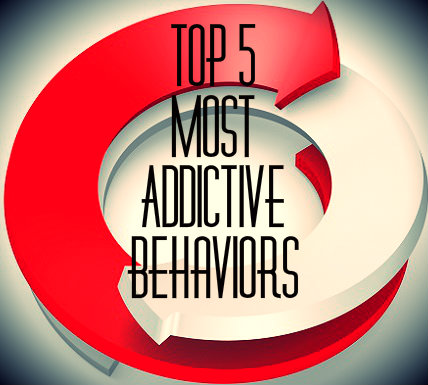 Gambling – Gambling tops that list. Gambling disorder affects two percent of the population and is the only behavior that gets widespread support as a true behavioral addiction. Much research on problem gambling has been conducted and has found that gamblers experience a high when winning, similar to the experience of drug use. They also experience withdrawal when not gambling, including physical symptoms like headaches and insomnia.
Gambling – Gambling tops that list. Gambling disorder affects two percent of the population and is the only behavior that gets widespread support as a true behavioral addiction. Much research on problem gambling has been conducted and has found that gamblers experience a high when winning, similar to the experience of drug use. They also experience withdrawal when not gambling, including physical symptoms like headaches and insomnia.
- Internet And Gaming – This type of addictive behavior is a recent addition, but a powerful one. Most experts agree that Internet gaming disorder is a real problem for some people and one that is very similar to drug addiction. Much of the evidence for Internet addiction being a real disorder comes from Asia. Young men there in particular have become so obsessed with gaming that they stop eating and neglect all other responsibilities, including the care of children. This level of obsession is similar to what drug addicts experience.
- Sex Addiction – That sex can become addictive is not surprising. The experience activates the reward system in the brain, as do drugs and alcohol. While regular and frequent sex with one partner is not unhealthy, obsessive sexual activities are. Compulsively using pornography, looking for sex with strangers or engaging in exhibition are behaviors that are considered signs of an unhealthy obsession with sexual activities.
- Eating – Food also activates our reward centers, especially foods that are high in fat, sugar or salt. Eating disorders like bulimia and anorexia are dangerous and involve compulsive behaviors, but they are not addictive disorders. Compulsive overeating, on the other hand, shares characteristics with drug and alcohol addiction. Also known as binge eating, this behavior includes obsessing over food. Compulsive eaters tend to spend an unnatural amount of time thinking about food, planning meals, and frenzied eating to the point of getting sick. Between two and four percent of Americans may struggle with binge eating.
- Shopping – Compulsive shopping is controversial among experts. Some think it can be classified as a behavioral addiction, while others are on the fence. More research is needed to clarify, but it seems that buying something you really want activates the reward system in your brain. Developing this obsession is harmful because it can lead to serious financial problems.
There are a number of behaviors that can become obsessive, but these five are the most common. Just like a drug addiction, these behaviors can cause you to engage in them compulsively, ignore your responsibilities, develop withdrawal, experience highs and ultimately even ruin your life. Be aware of the possibility of behavioral addictions and look for signs of obsessions in yourself and those you love so you can get professional help if needed.
Read Our Other Behavioral Addictions Posts
01 Oct 2014
Are You Codependent?
Codependency is a term that derived several decades ago from the term co-alcoholism. It was coined to describe the role of the spouse of an alcoholic. Today that term has evolved to head a number of symptoms of dysfunctional relationships, both those with an addict and without. A codependent relationship can exist without any type of addiction. But, if you are the partner or spouse of an addict your odds of being codependent are greater. What does this mean? And how do you know if you are codependent?
Having An Addicted Partner And Codependency
 If you do have a partner addicted to drugs or alcohol, or even with a behavioral addiction, you should learn more about codependency and what it means. Your partner definitely needs treatment for addiction, but you may benefit from therapy as well. Being the partner of an addict takes its toll. A simple definition would state that being codependent means drawing your self-esteem and self-worth from your partner.
If you do have a partner addicted to drugs or alcohol, or even with a behavioral addiction, you should learn more about codependency and what it means. Your partner definitely needs treatment for addiction, but you may benefit from therapy as well. Being the partner of an addict takes its toll. A simple definition would state that being codependent means drawing your self-esteem and self-worth from your partner.
This type of dynamic often exists between an addict and their partner because of the balance they strike together. Addicts need someone to enable their habit, make excuses for them and care for them. Codependents need someone to care for and someone to need them. Together the two fit perfectly, if not healthfully.
Signs You Might Be Codependent
Are you codependent? Here are some signs that might indicate you are:
- You Have Low Self-Esteem – Codependents often have a poor sense of self-worth. They feel unworthy of love. They compare themselves to others and come up feeling inadequate. You may be good at hiding this, even from yourself, so dig deep and think about how you really feel.
- You Love To Please Others – If you are codependent, you take much of your self-worth from caring for someone else. As a result, you may be afraid to upset anyone. You can’t say no and you go out of your way to make sure others are happy, often at the expense of your own needs.
- You Ignore Warnings Signs – Problems that your partner has, like his addiction, are crystal clear to others, but you ignore them. You make excuses for his drug or alcohol use and his inappropriate behaviors. You stay in the relationship despite the fact that he is not meeting your needs.
- You Have Poor Boundaries – Codependents have a hard time setting or staying within relationship boundaries. You may have either weak or rigid boundaries. Maybe you share too much personal information or give too much of yourself. On the other hand, you may be withdrawn and unwilling to let anyone see what you’re feeling.
- You Need Control – You like to be in control because it makes you feel safe. This comes out in the form of controlling your partner, or trying to. Controlling can look like caring. Your need to please others or to care for your partner can be a form of control.
- You’re Afraid Of Being Alone – You see the issues in your relationship, but you ignore or deny them because you fear ending it. Being alone scares you because you take your sense of self-worth from your partner. You may be miserable, but you’re going to stay.
Treatment For Codependency
Codependency is not uncommon. If you see these signs in yourself and your relationship, you are far from alone. Still, this type of relationship is unhealthy, especially when one partner is an addict. Treatment can reverse codependency and help you learn to love yourself without needing someone else. Treatment can also help your partner overcome addiction. The important first step is to recognize the problem. Then you can both get help.
If You’re In A Relationship With An Addict Should You Stay Or Leave? Read More Now!
30 Sep 2014
Does Drug Rehab Work?
Drug rehab success statistics are difficult to measure. One reason is that addiction is a chronic disease. With any chronic disease you can expect to relapse and to need some type of treatment over an entire lifetime. Addiction is not like an acute sickness that can be treated once and cured. If you struggle with a drug addiction, rehab will help you, but you have to recognize that it does not represent a cure for your illness. What rehab can do is guide you onto a path of lifelong sobriety that you will work on for the rest of your life.
Rehab Information And FAQs
Learn more about rehab information and rehab FAQs.
What Do They Do In Rehab?
 Rehab is short for rehabilitation and it refers to a program of treatment that will help you learn how to get sober and how to stay sober once you leave treatment. Rehab includes detoxifying the body and working through the inevitable withdrawal symptoms. Once you have completed detox you can expect to progress through a treatment plan devised by you and experienced addiction and health professionals.
Rehab is short for rehabilitation and it refers to a program of treatment that will help you learn how to get sober and how to stay sober once you leave treatment. Rehab includes detoxifying the body and working through the inevitable withdrawal symptoms. Once you have completed detox you can expect to progress through a treatment plan devised by you and experienced addiction and health professionals.
Treatment in rehab includes individual therapy, family therapy, support groups and group therapy as well as supplemental activities such as art therapy, exercise, meditation and other holistic practices. You may also be treated with medication while in rehab. You can also expect to learn about living your new sober life outside of rehab and coping mechanisms to help you resist urges to relapse.
What Makes Rehab Successful?
Although it’s hard to say that rehab works for everyone, it does help most addicts get clean. The most successful drug rehab programs are those that create individualized treatment plans. Everyone is different and one plan will not work for everyone. Rehab also works when there are experienced, trained and committed professionals working to help you. Finally, successful drug rehab includes a commitment and hard work from you, the client. When you put in the time and the effort to get well again, you can expect that rehab will work for you.
Life After Rehab
Because addiction is a chronic disease, you have to remember that rehab is not the end of your treatment. People who think that rehab doesn’t work are often misinformed and expect to be cured by the end of their stay. A good rehab program will teach you how to be successful after you leave rehab. This often means continuing with some type of therapy and possibly attending support group meetings and working with a sponsor.
As with any chronic illness, like diabetes or high blood pressure, your addiction may relapse after rehab. That doesn’t mean that rehab didn’t work. It simply means that you need continuing care and treatment. Don’t consider a relapse a defeat. It’s just a wake-up call letting you know that you need to get back to therapy or some other type of treatment. Keep working hard toward sobriety and you will be able to live with and manage your disease.
Get The Know How On Additional, Important Drug Rehab FAQs
Much of the current drug news from around the country focuses on heroin and narcotic painkillers. Methamphetamine is sometimes thought of as yesterday’s news, but in many areas it is still a raging problem. In 2013, news outlets reported that Tennessee had become the leading state in the U.S. for meth use. Now a new law has gone into effect that legislators and law enforcement officials hope will crack down on the epidemic in Tennessee that is costing taxpayers $1 billion a year.
The Meth Problem
It was more than a decade ago that meth labs started springing up around the country, but particularly in rural areas. Methamphetamine is a controlled substance that can be prescribed by a doctor, but rarely is. The side effects and the potential for abuse are so great that it is a last-resort medication for some medical conditions, including ADHD and obesity.
Effects Of Meth
Meth is susceptible to abuse because it is a stimulant and gives the user energy as well as a euphoric feeling. On the downside, meth can cause:
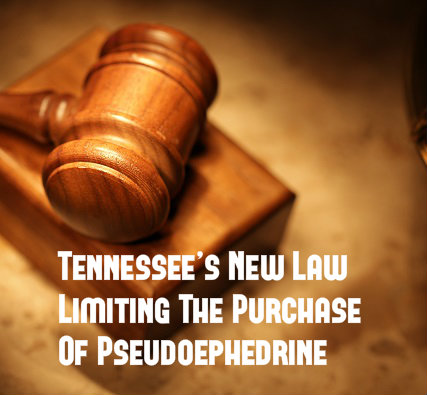 high blood pressure
high blood pressure- an elevated body temperature
- dry mouth
- jaw-clenching
- memory loss
- aggression
- paranoia
- anxiety
- insomnia
- brain damage
- organ damage
- severe dental problems
- violent behavior
It is also highly addictive and with prolonged and continued use, the negative side effects increase.
Meth has become such a huge problem because it is relatively easy to make. With just a few ingredients, including an over-the-counter cough medicine ingredient, anyone can make it in a home lab. These labs are abundant in Tennessee and the drug has been having disastrous effects on individuals and families in the state.
How Tennessee’s New Law Is Limiting The Purchase Of Pseudoephedrine
While other states have enacted and enforced strict laws regarding the purchase of cough medicine that have helped cut down on meth manufacturing and use, Tennessee has fallen behind. A bill passed in April can now change the course of Tennessee’s meth trajectory. The new law restricts the purchase of medicines containing pseudoephedrine, the cough medicine ingredient for making meth, to 48 tablets per month and 240 per year. The cap previously sat at 75 tablets per month. Some lawmakers wanted to slash that maximum even further, but a compromise was set at 48.
It may seem like a no-brainer to restrict pseudoephedrine, but there are plenty of law-abiding Tennesseans who depend on the medication for allergy relief. Some opponents of the bill argued that it was unfair to restrict access to the medication and stated that most of the meth used in Tennessee comes from other states. Still, the majority of lawmakers agreed that slashing the maximum allowance would curb meth use in the state.
As part of the restriction on buying pseudoephedrine, consumers’ purchases of the medication will be tracked. Those with a real medical need for more pseudoephedrine will be able to go over the limit with a doctor’s prescription. The need for more restrictions on meth-making ingredients is great and many feel that this new law meets that need. Others are skeptical, but only time will tell if Tennesseans are really ready to kick the meth habit.
Read Other News In Addiction And Addiction Rehab
11 Sep 2014
Should You Try A Rapid Detox?
If you have been struggling with addiction, especially addiction to opioids like heroin or narcotic painkillers, you know how hard it is to kick the habit. As soon as you try to stop using, terrible withdrawal symptoms begin. They can be so severe that you feel you have no choice but to go back to using just to find relief. For many addicts the idea of a rapid, or even an ultra-rapid, detox is appealing. The promise of relief from withdrawal and an accelerated period of detox are tempting. But should you do it? There are risks and the effectiveness of such methods is not fully known. Before you think about going through with it, know the facts.
What Is Rapid Detox?
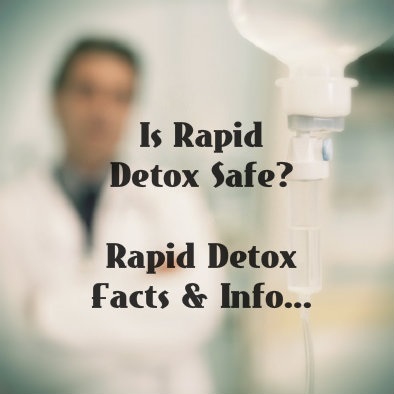 Rapid detox is an accelerated way of getting a drug out of your system. A physician or nurse who will give you a dose of an opioid agonist, such as naltrexone, typically conducts it. This is a drug that blocks the effect of any opioid still in your body. You will also be given some type of sedative so that as your body goes through withdrawal, you may feel little or none of it. In other words, you sleep through your withdrawal in relative comfort. Ultra rapid detox involves the intravenous delivery of naltrexone to make the process occur even more quickly.
Rapid detox is an accelerated way of getting a drug out of your system. A physician or nurse who will give you a dose of an opioid agonist, such as naltrexone, typically conducts it. This is a drug that blocks the effect of any opioid still in your body. You will also be given some type of sedative so that as your body goes through withdrawal, you may feel little or none of it. In other words, you sleep through your withdrawal in relative comfort. Ultra rapid detox involves the intravenous delivery of naltrexone to make the process occur even more quickly.
Does Rapid Detox Work?
Rapid detox does work in the sense that it clears your body of opioid drugs. However, simply not using the drugs anymore would achieve the same result. The real question is whether rapid or ultra-rapid detoxes work any better for long-term recovery than a natural detox process. A few studies of rapid detox have failed to find that the technique is any better for patients than a normal detox. In fact, they found that addicts undergoing rapid detox feel just as bad when they wake up from the process as those that were not given medications to minimize discomfort. Furthermore, the patients getting a rapid detox had similar long-term success rates as other addicts receiving the same post-detox treatment.
Is Rapid Detox Safe?
So far, rapid detox seems to be safe, but the same cannot yet be said for ultra-rapid detox. A few patients have suffered serious harm from the latter, and all had pre-existing conditions. The use of anesthesia during ultra-rapid detox can be dangerous for those with certain conditions, like AIDS, heart disease, hepatitis or diabetes.
Although it may feel like it at the time, withdrawal symptoms will not kill you. What can cause an addict to die is going back to drug use after a period of abstinence. By abstaining for a period of time you can lose some of your tolerance for an opioid drug. This means that if you relapse after detoxing you run an increased risk of accidentally overdosing. If you do not back up your rapid detox with further treatment, you will be more likely to relapse. Some people think that going through the detox will cure them of addiction and that they need no more treatment. This is a dangerous attitude.
Overall, the evidence is pointing to the fact that a rapid detox will not help you, but that it is safe if you have no pre-existing conditions and if you engage in long-term treatments for your addiction after a detox. It is wrong to believe that a rapid detox is the answer to your problems. You may want to use it as one tool in fighting your addiction, but it is not a cure.
Learn More About How Withdrawal Treatment And Detox Has Changed Over Time
Individuals with a mental disorder often have a co-existing condition, such as depression, anxiety, or often, a substance use disorder. Alcohol or drugs are frequently used to medicate the symptoms of a mental disorder. But the presence of a substance use disorder can make treatment more complicated and can delay the reduction in symptoms.
Altered Mismatch Negativity
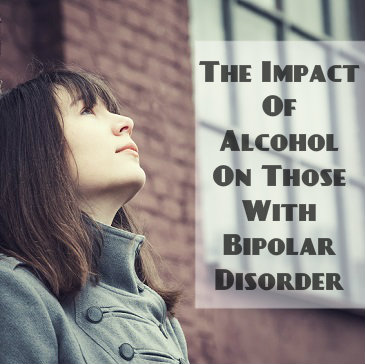 In an article appearing in Clinical Psychiatry News, researchers in Australia examined the impact of risky alcohol consumption among those with bipolar disorder, as compared with nondrinkers. The study found that there was a phenomenon known as “altered mismatch negativity” on electroencephalography (EEG) exams among those with risky drinking histories.
In an article appearing in Clinical Psychiatry News, researchers in Australia examined the impact of risky alcohol consumption among those with bipolar disorder, as compared with nondrinkers. The study found that there was a phenomenon known as “altered mismatch negativity” on electroencephalography (EEG) exams among those with risky drinking histories.
According to the article, mismatch negativity is the brain’s automatic electrical activity that responds to auditory stimulation when there is a change in sounds. When there is a reduction in mismatch negativity, it indicates an impairment of NMDA-receptor activation. The NMDA receptors were already thought to be impacted by both alcohol use and in patients with bipolar disorder.
To measure the mismatch negativity in individuals with risky alcohol use and bipolar disorder, the researchers recruited 42 bipolar disorder patients and 34 control subjects. The participants were between the ages of 16 and 30. The participants were subjected to EEG exams with auditory stimuli.
Among the participants, 16 bipolar patients engaged in risky alcohol-related behaviors, as well as 14 of the control subjects. Of the remaining patients, 26 of the bipolar subjects and 20 of the control subjects did not engage in risky drinking.
Misuse Of Alcohol In Those Who Are Bipolar
The researchers found that the misuse of alcohol was a strong predictor of attenuations in mismatch negativity. The effect was significantly more profound among those diagnosed with bipolar disorder. The researchers believe that the alcohol may play an antagonistic role on the NMDA/glutamatergic system. This is consistent with the growing use of glutamatergic agents to treat bipolar disorder. Limiting alcohol consumption may be an important step when beginning treatment with glutamatergic agents.
The article notes recent studies showing that bipolar males between the ages of 20 and 30 have the highest weekly substance use. In more general terms, those who are diagnosed with bipolar disorder before adulthood have lifetime alcohol use rates of up to 70 percent.
The researchers note multiple potential limitations on their findings. For instance, the youths included in the study are not able to legally buy alcohol in Australia, so the underage drinkers may have had incentive to understate drinking behavior.
The study adds to the body of evidence that shows that bipolar disorder patients are particularly susceptible to the dangers of risky alcohol consumption.
Discover Why Integrating Medical And Mental Health Treatment Is Crucial
A long-standing philosophy of alcoholism treatment has been that total abstinence is necessary and that there is no possibility that someone with a drinking problem could handle moderate drinking. Today we know a lot more about addiction thanks to research and we know that it is more complicated than was previously thought. So, is it possible for a problem drinker to continue drinking responsibly and in moderation? Or is abstinence the only way to go?
What Does Moderation Mean?
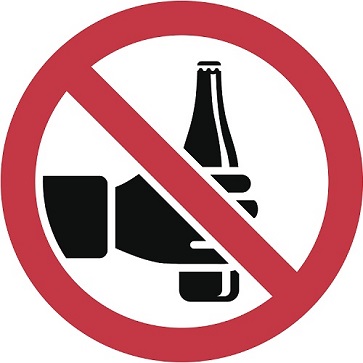 One immediate problem comes to mind when debating the possibility of moderate and responsibly drinking, and that is how to define it. Many problem drinkers and alcoholics are in denial about how much they drink and how much of an issue it is. It is not difficult to imagine that an alcoholic attempting moderation would use it as an excuse to keep drinking all the while claiming his habit was surely moderate.
One immediate problem comes to mind when debating the possibility of moderate and responsibly drinking, and that is how to define it. Many problem drinkers and alcoholics are in denial about how much they drink and how much of an issue it is. It is not difficult to imagine that an alcoholic attempting moderation would use it as an excuse to keep drinking all the while claiming his habit was surely moderate.
At a basic level moderation means setting reasonable drinking limits and sticking with them. According to the organization Moderation Management, which guides problem drinkers toward reducing their alcohol consumption, men should have no more than four drinks at one time and no more than 14 per week. For women, that amount is three at once and no more than nine per week. Both men and women are supposed to restrict drinking to three to four days each week.
Does Moderation Work For Problem Drinkers?
There are many proponents of moderation who claim that problem drinkers can more successfully establish a healthy relationship with alcohol by moderating than by abstaining. Research does seem to support this viewpoint. One study included participants, all of whom were problem drinkers to varying degrees, who attempted to moderate their habit rather than stop drinking completely. They used a website application designed to guide them through the process. Some used a simple website, while others used an interactive application.
The problem drinkers that used the website alone were able to raise their abstinent time during each month by about four percent. On days they did drink, their blood alcohol content dropped by 50 percent or more, which indicates that they reduced the amount of drinks significantly. For participants using an interactive application, the number of days without drinking at all doubled. Those that used both tools were able to reduce their drinking to fully moderate levels across the board.
Can True Alcoholics Drink Responsibly?
The study that showed moderation could be successful included some very heavy drinkers. However, they did not include people who experienced withdrawal, a key characteristic of alcoholism. So far there is little to no evidence that moderation could be possible for anyone who is seriously dependent on alcohol. In fact, many experts are in agreement that trying to drink moderately could be dangerous for true alcoholics.
This doesn’t mean that moderation is not a great way to help many people. Among all people who have a problem with drinking, most of them have not yet crossed the line into alcohol dependence. If these people can be reached with tools to help them change their drinking from a problem to responsible moderation, the incidence of alcoholism, and all the problems that go along with the disease, could be reduced.
For those people who are already physically and psychologically dependent on alcohol, abstinence is probably the only option. But, for millions of people across the country for whom drinking is a problem, moderation may be a strong motivational tool for making positive changes. The philosophy of abstinence only has been around for a long time, but a shift is starting to occur and it may be for the better.
Learn More About The Steps Of Alcohol Detox
14 Aug 2014
Who Is Going To Rehab?
A successful drug rehab program is one that reaches out to all kinds of people who need help and that provides those people with the skills they need to stay sober outside of the program. There are plenty of wonderful rehab facilities operating today, but who is getting help? Statistics can give us a lot of information about who is going to rehab and getting much-needed treatment.
What Can Be Treated In Rehab?
 What happens in rehab depends on the type of addiction being treated, the age and experience of the patient and many other individualized factors. Information from surveys and research tell us that the majority of patients seeking help in rehab facilities are struggling with alcoholism or problem drinking. Nearly one-quarter of all admissions to rehab are people with an alcohol problem only.
What happens in rehab depends on the type of addiction being treated, the age and experience of the patient and many other individualized factors. Information from surveys and research tell us that the majority of patients seeking help in rehab facilities are struggling with alcoholism or problem drinking. Nearly one-quarter of all admissions to rehab are people with an alcohol problem only.
A further 18 percent need treatment for alcohol addiction and abuse of another substance. Seventeen percent of people getting help are struggling with marijuana dependence, 14 percent need help for heroin addiction, and about 6 percent are battling addiction to non-heroin opioid drugs, most commonly prescription painkillers.
What Types Of People Seek Help?
Addiction is not a disease that targets one kind of person. Over 23 million people need to get treatment for addiction every year in the U.S. Among that population, 60 percent of people seeking help are white. Twenty percent of people in rehab are African American, 14 percent are Hispanic and 6 percent are Native American or Asian.
People seeking treatment for addiction may be any age, although the majority of admissions are people between the ages of 25 and 29. The next most likely age for those seeking treatment is between 20 and 24, followed by 40 to 44, with numbers dropping off quickly after age 60. Although the makeup of people getting care for addiction is varied, access is still not perfect and not everyone who needs help is getting it.
Is Rehab Successful?
Drug rehab is successful for many people, but it is important to remember that addiction is a chronic illness and has no cure. Drug rehab success rate statistics refer to the ability of programs to set addicts on the path to long-term sobriety. Relapse is not considered failure, as most addicts can expect to give in to cravings at least once. In fact, statistics show that rates of relapse for addicts seeking treatment are similar to those for other chronic diseases such as high blood pressure and diabetes.
Words of encouragement for someone in rehab can go a long way toward helping him or her achieve successful sobriety. If you have someone in your life struggling to make it through rehab, lend your support, your words of inspiration and your time in order to help him or her along the path to long-term success.
Learn More About Drug And Alcohol Rehab
If You Would Like More Information About Rehab – Call Us Now – We Are Here To Help!


